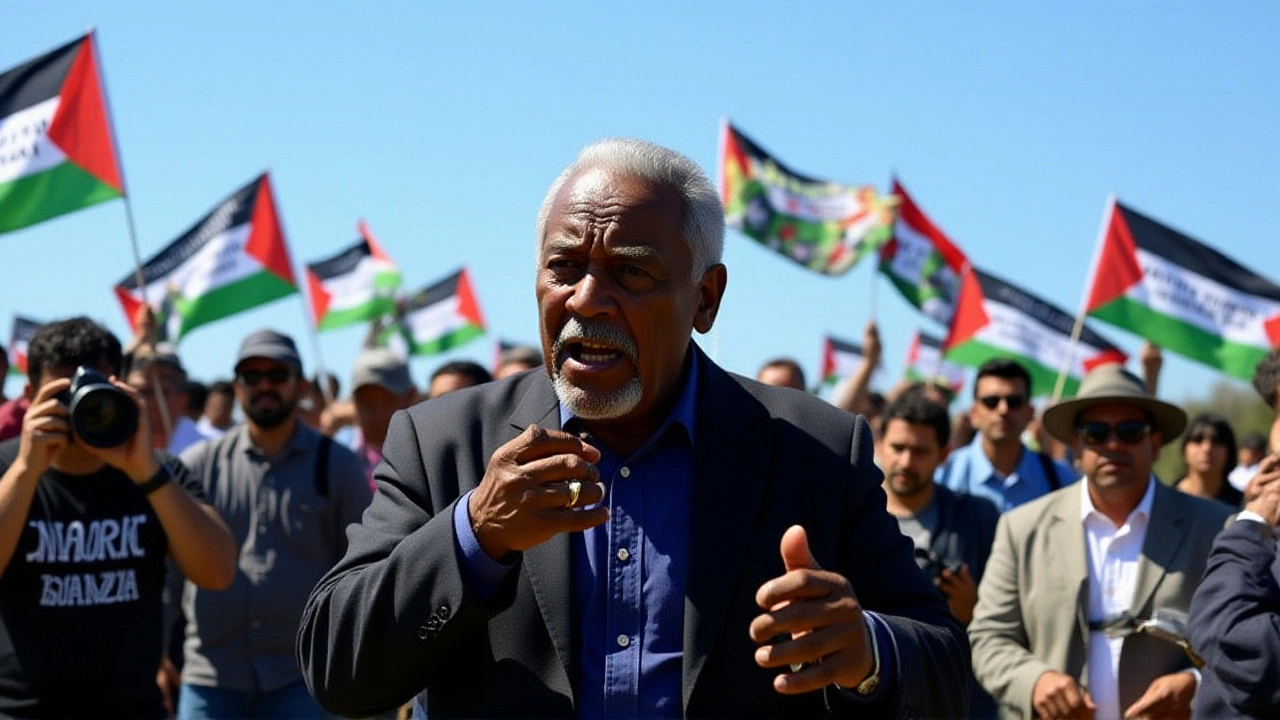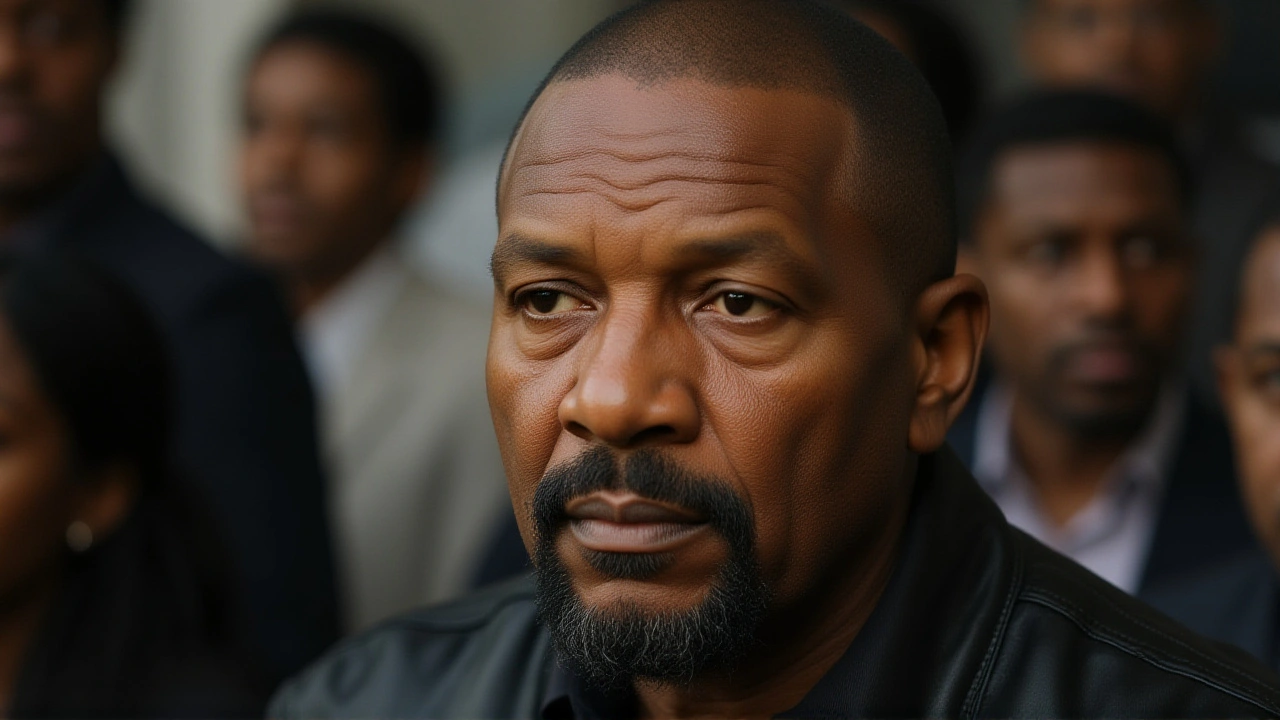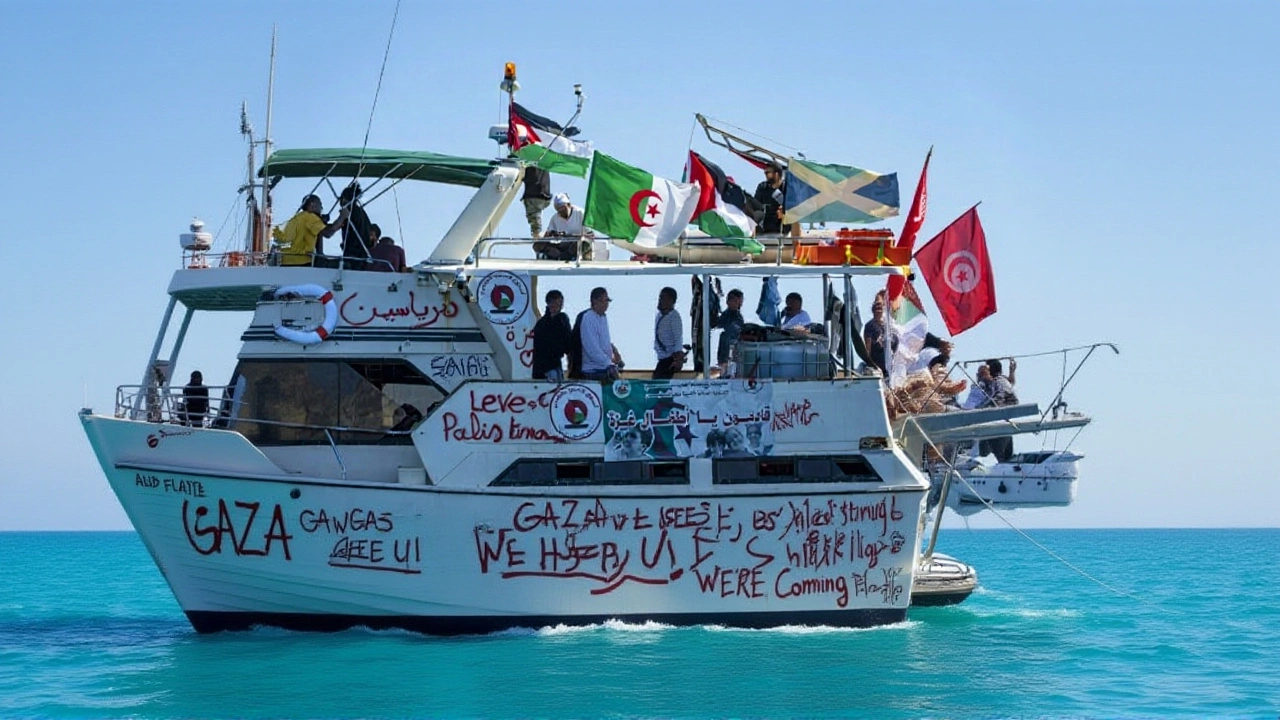Israeli Navy Seizes Gaza Flotilla, Detains 400, Mandela & Thunberg

When Israeli Defense Forces moved to stop the Global Sumud Flotilla on Oct 1, 2025, they hauled more than 400 volunteers into custody – among them Mandla Mandela, grandson of Nelson Mandela and former South African MP, and Swedish climate activist Greta Thunberg. The operation unfolded off the coast of Gaza during the Jewish holy day of Yom Kippur, sending shockwaves through diplomatic circles and igniting protests worldwide.
Background: The Global Sumud Flotilla’s Mission
Conceived in early August 2025, the Global Sumud Flotilla was a coordinated humanitarian convoy of 44 vessels, 500 volunteers and supplies destined for the 2 million‑strong population under siege in Gaza. Participants hailed from more than 45 nations, packing hundreds of tons of medicine, infant formula, diapers, food and even prosthetic limbs.
Organizers framed the venture as a direct challenge to the Israeli naval blockade that has been in place since 2007. They cited the International Court of Justice’s provisional ruling on March 28, 2024, which declared any obstruction of humanitarian aid to Gaza a violation of international law. “We’re not just delivering boxes,” said Thiago Avila, a Brazilian participant, “we’re delivering a message that the world won’t stay silent.”
Interception: How the Raid Unfolded
Late Wednesday, Israeli warships – estimates put the number at roughly 20 – converged on the convoy as it approached the 70‑kilometre maritime exclusion zone. Drones buzzed overhead, broadcasting live warnings that the flotilla was entering an "active war zone" and would be seized if it persisted. The first vessel to be boarded, the Alma, transmitted a shaky live‑feed before the picture went black, later resurfacing to show a deserted deck.
According to eyewitnesses on the vessel Hope, crew members were ordered to lower their flags and hand over navigation logs. Within two hours, Israeli forces had detained over 400 individuals, including high‑profile activists and politicians. The detainees were escorted to the Ketziot detention centre, a fact that sparked viral memes on social media, notably from influencer Tommy Marcus, who joked, "Ktziot here I come. Finally making birthright."
At the same time, 30 vessels that managed to outrun the blockade remained at sea, broadcasting their intent to reroute and attempt another delivery.
International Reaction: Condemnations and Calls for Action
The raid ignited a chorus of condemnation. Italian unions announced a general strike for Friday, echoing a similar protest two weeks earlier that had shut down factories in Milan and Rome. The Council on American‑Islamic Relations (CAIR) condemned the seizure as "an act of piracy meant to sustain genocide," with Deputy Executive Director Edward Ahmed Mitchell urging nations to "break the siege of Gaza".
In Washington, a bipartisan group of 12 senators penned a letter to Secretary of State Marco Rubio demanding immediate diplomatic pressure on Israel. "The law is clear: any attack on the Global Sumud Flotilla or its civilians is a blatant violation of international law," the letter read, calling for protective measures for U.S. citizens aboard the convoy.
Protests erupted in major cities – from London’s Trafalgar Square to New York’s Union Square – where demonstrators displayed banners reading "Humanity Over Blockade" and "Free the 400".

Legal and Diplomatic Implications
Legal scholars are already debating the ramifications. Professor Aisha Al‑Mansouri of the University of Edinburgh notes that the interception took place in what appears to be international waters, raising questions about Israel’s jurisdiction. "Under the United Nations Convention on the Law of the Sea, a state may not enforce a blockade beyond 24 nautical miles unless it can prove a direct threat," she explained.
Meanwhile, the United Nations Human Rights Council is slated to convene an emergency session next week to address the incident. A draft resolution, sponsored by South Africa and Norway, would call for an independent investigation and reaffirm the right of humanitarian vessels to operate without hindrance.
Israel maintains that the blockade is a lawful security measure aimed at preventing weapons smuggling. A spokesperson for the Israeli Ministry of Defense said, "Every nation has the right to protect its citizens. We will continue to monitor and intercept any vessel that threatens our security, regardless of symbolic dates such as Yom Kippur."
Future of Humanitarian Aid to Gaza
Despite the setback, flotilla organizers are undeterred. An Instagram post from the campaign’s official account read, "They take one boat, we sail with 40. They try to stop us, we escalate. Take the streets, take the ports, take the seas." The message was accompanied by a video montage of volunteers loading supplies onto smaller motorboats, hinting at a shift toward a decentralized delivery model.
European Union officials are reportedly in talks with the United Nations to establish a protected maritime corridor, a concept previously floated during the 2023 humanitarian crises in the Mediterranean. If approved, such a corridor could allow aid ships to pass under UN escort, reducing the risk of interception.
In the meantime, the 400 detainees face a legal limbo. Israeli courts are expected to hold preliminary hearings within the next two weeks, and human‑rights groups are preparing to file amicus briefs arguing for their immediate release.
Key Takeaways
- Israel intercepted the Global Sumud Flotilla on Oct 1, 2025, detaining over 400 volunteers.
- High‑profile detainees included Mandla Mandela and Greta Thunberg.
- The raid sparked worldwide protests and diplomatic inquiries.
- Legal experts question the legality of the seizure in international waters.
- Future aid missions may shift to smaller vessels or seek UN‑protected corridors.

Frequently Asked Questions
Why did Israel intercept the flotilla despite it being in international waters?
Israel argues the blockade around Gaza extends to 20 nautical miles for security reasons, claiming any vessel approaching could be used to smuggle weapons. Critics say the interception violated the United Nations Convention on the Law of the Sea, which limits blockades to a 24‑nautical‑mile limit unless a direct threat is proven.
Who are the most notable figures detained?
Among the 400 arrested were Mandla Mandela, a former South African MP and Nelson Mandela’s grandson, and climate activist Greta Thunberg. European Union MEPs Rima Hassan and Emma Fourreau, former Barcelona mayor Ada Colau, and actress Adèle Haenel were also captured.
What legal avenues exist for the detainees?
Human‑rights lawyers plan to file petitions before Israel’s Supreme Court, arguing the arrests breach international humanitarian law. Additionally, NGOs are preparing amicus briefs for the International Court of Justice, seeking a ruling that any blockade enforcement outside territorial waters is unlawful.
How are other countries responding?
Several European parliaments have issued statements condemning the raid and called for an EU‑wide humanitarian corridor. The United States, via Secretary of State Marco Rubio, received a bipartisan letter urging protective measures for U.S. citizens. Meanwhile, Italy announced a nationwide strike in solidarity with the volunteers.
What does this mean for future aid deliveries to Gaza?
Organizers say the mission will continue, likely using smaller, faster boats to evade detection. International talks are exploring a UN‑monitored sea corridor, but until an agreement is reached, aid groups anticipate more confrontations with Israeli naval forces.

Tom Gin
October 3, 2025 AT 18:41Alex Alevy
October 4, 2025 AT 17:27Danica Tamura
October 4, 2025 AT 20:31William H
October 5, 2025 AT 05:24Katelyn Tamilio
October 6, 2025 AT 05:06Michael Klamm
October 6, 2025 AT 07:07Shirley Kaufman
October 7, 2025 AT 03:37christian lassen
October 7, 2025 AT 21:27Jack Fiore
October 8, 2025 AT 18:52Antony Delagarza
October 9, 2025 AT 00:05Murray Hill
October 9, 2025 AT 14:32Bruce Wallwin
October 9, 2025 AT 14:34Letetia Mullenix
October 10, 2025 AT 10:40Morgan Skinner
October 11, 2025 AT 04:53